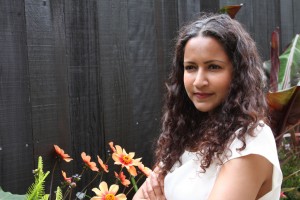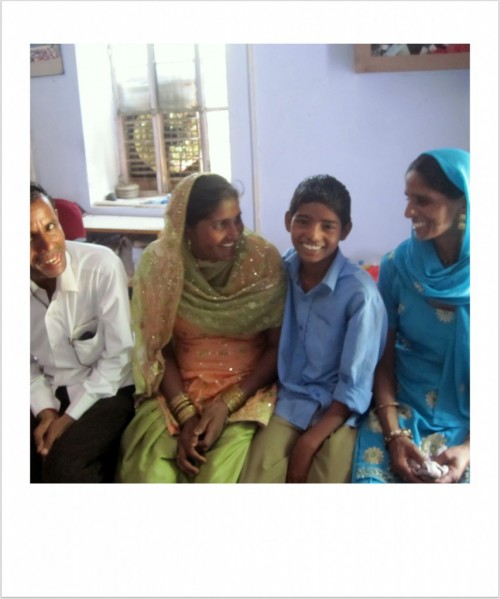Vishal Come Home – Sonia Faleiro
Vishal is a 10-year-old with naughty eyes, a shiny fringe, and crooked gutka-stained teeth. On days that he attends fourth grade in the village of Sauthana, Rajasthan, he wears a
Vishal is a 10-year-old with naughty eyes, a shiny fringe, and crooked gutka-stained teeth. On days that he attends fourth grade in the village of Sauthana, Rajasthan, he wears a blue shirt, sleeves rolled up to his elbows, and khaki pants that graze his ankles. For fun, he may carry a stick. Vishal likes dogs. He enjoys the company of adults. He says ‘Hehn?’ when he’s asked to do something, as though he can’t hear. And he laughs at his own jokes.

In early 2007, Vishal ran away from his home in Rajasthan’s Pilibanga village where he lived with his parents Manak, a tailor, and Suguna, a housewife, and his three siblings. ‘I got tired of my father beating me,’ he said. ‘Why, once he got so angry, he bit my sister’s cheek.’
Six-year-old Vishal jumped a train to Jodhpur. He didn’t know what he would do there or even why Jodhpur seemed like a good idea. All he knew was that for a boy who seemed to get slapped around every time he was home, anyplace was better.
Hopping off at Jodhpur station, Vishal was immediately embraced by a gang of other runaways. Another boy would make their gang stronger, and a new boy would be eager to learn because he would be eager to eat.
‘We worked hard,’ said Vishal. ‘We swept train carriages, we scavenged for empty bottles we sold to the kabaddiwala.’
They picked pockets.
Then one day, they got recruited by a gangster who dealt drugs.
The gangster controlled the boys by manipulating their numerous addictions—to cigarettes and gutka, but also to alcohol and whitener (correction fluid) and cough syrup.
The gangster would organize as many as seven or eight boys for drug delivery trips from Jodhpur to Mumbai.
‘Who notices small boys? People thought we were beggars.’
Each boy carried one steel tiffin box of the sort children take to school packed with sabzi-parantha lunches. Except that each of the tiffin boxes was packed with heroin. Afterwards they hopped a train back to Jodhpur.
In the three months that Vishal was in Jodhpur he was used as a drug mule a half dozen times. He also became addicted to numerous substances, encouraged by the gangster.
Then he got lucky. Far luckier than most run-aways in India.
In August 2007, three months after he had run away from home, Vishal and his friends attracted the attention of an activist from a local NGO who urged the group to seek help. They agreed, and were sent to Bal Ashram, a home for rescued boys near Jaipur, run by the Bachpan Bachao Andolan (BBA), an organization that works to identify, rescue and rehabilitate children in servitude.
Although Vishal may have lived a lifetime in three months, his time on the street was still short enough to make recovery a possibility. Not so for all his friends. One of their gang of six ran away, possibly back to the station platform, after he was caught breaking into the Bal Ashram office to feed his addiction for whitener.
For almost four years a traumatized, perhaps even brain damaged Vishal had no memory of who he was or where he had come from.
‘For the longest time he insisted he was an orphan,’ said Omprakash Sharma, a teacher and therapist at the Ashram. ‘Then he remembered he had parents but he didn’t know what their names were or where they lived.’
It was much later, months after he had been detoxed, and years after he had learnt how to read and write and had been enrolled by the Ashram at the local government school where he would go on to excel in Hindi and Art, that Vishal remembered the name of his village.
With the help of the police in Pilbanga the BBA was able to track down a man thought to be Vishal’s father. The police called him to the station and having dialed Bal Ashram and spoken with Vishal, handed the receiver to Manak.
After Vishal hung up the phone he ran out of the Ashram office yelling out his news; he got down on his knees and threw his arms around the Ashram Alsatian.
A few hours later he was subdued.
‘I won’t be beaten again,’ he said.
‘We’ll pack you in your father’s suitcase and send you off,’ joked Sharma.
Vishal didn’t laugh. ‘Better I stay here and study.’
In early July 2011, Vishal’s parents and aunt arrived at Bal Ashram with bags of bananas and a huge box of barfi to celebrate the day they had prayed for.

They had hardly made it through the gate before their boy hurled himself into their arms. He dragged them into the Ashram office, sat them down on chairs, and while his father, his eyes full of tears, immediately started dialing waiting relatives and friends on his cell phone to deliver the good news, Vishal buried his face into his mother’s neck. Suguna bent her head down and whispered a question into his ear. He nodded. She pulled him towards her and began to smother him with kisses.
Manak called into his phone: ‘Guruji, it’s him!’
He turned to his audience of delighted well-wishers. ‘I can’t tell you how hard we looked for Vishal. We searched everywhere, we called everyone. We went to the police and made them file a First Information Report. But that wasn’t enough. I printed out hundreds of fliers with Vishal’s photograph and drove through one neighbourhood after the other distributing them. We visited temples, even mosques. I spent thousands begging one guru after another to tell me when my son would return. ‘Soon,’ one of them said to me. ‘Soon.’ But months turned into years and after some years Vishal’s mother thought she would see our son only after she died.’
‘And so we stopped looking. And then, this!’
Vishal and his mother held each other wordlessly.
‘So Vishal,’ joked one of his teachers.
‘Are you going home or not?’
Sonia Faleiro is travelling through India exploring the implications of poverty on children. She is the author of Beautiful Thing: Inside the Secret World of Bombay’s Dance Bars. She is also an award-winning reporter and writer. She has reported for publications including India Today and Tehelka. Sonia was born in Goa, studied in Edinburgh and lives in San Francisco. She is working on her second book of non-fiction.
This story made me
- 97
- 121
- 89
- 167










